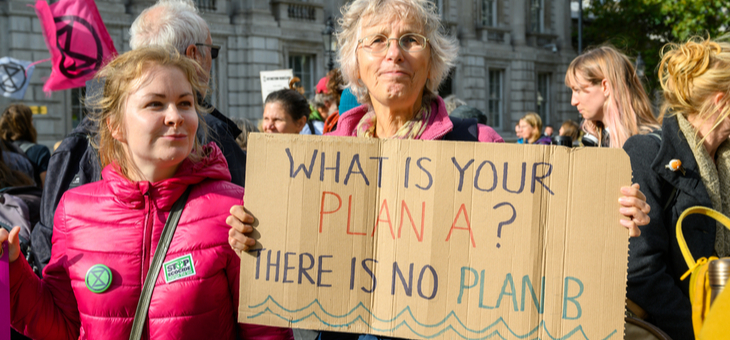A leading body for older Australians wants the government to offer ‘green bonds’ so they can invest in the fight against climate change.
In a pre-budget submission, National Seniors Australia (NSA) wants green infrastructure bonds offered directly to those of retirement age. It says a survey of its members found 82 per cent are concerned about climate change.
Green bonds are devoted to financing new and existing projects or activities with positive environmental impacts.
Investopedia says green bonds finance projects “aimed at energy efficiency, pollution prevention, sustainable agriculture, fishery and forestry, the protection of aquatic and terrestrial ecosystems, clean transportation, clean water, and sustainable water management. They also finance the cultivation of environmentally friendly technologies and the mitigation of climate change”.
The NSA wants green bonds to be available “directly over the counter through Australia Post or a registered bank”, reports Nine’s Shane Wright.
“National Seniors want the bonds limited to people over the Age Pension eligibility age, which is slated to rise to 66 years and 6 months on 1 July. Bonds would be sold in $5000 lots with people limited to a maximum $50,000 purchase.”
Read more: Older Australians vote for climate change
As with other types of bonds, such as those for funerals, the green bonds would be exempt from the Age Pension assets test.
“It is clear the transition to clean energy requires investment in renewable energy generation and storage infrastructure,” the NSA submission says. “This creates a unique opportunity to combine older Australians’ need for safe investments and their desire to act on climate change.”
The NSA survey of more than 3600 members revealed that 58.6 per cent wanted action taken to deal with climate change even if it increased their cost of living. Only 10 per cent said climate change was not occurring.
In July last year, the AFR reported that Australian Unity investment manager Altius had offered the first managed fund of green bonds, with the Clean Energy Finance Corporation committing $70 million. Altius is providing access to “30 corporate and government bonds, the proceeds of which are earmarked for projects to reduce carbon emissions”.
In November 2020, Investment magazine reported that expanded ‘green’ criteria was set to “unleash a wave of new green and ‘transition’ bonds from across Australian industry as companies and superannuation funds leverage markets to help fund their 2050 Net Zero targets”.
“Waste and residential property sectors are set to join banks, property developers, renewable energy players and state governments in issuing ‘green’ debt ringfenced for decarbonising projects, while big polluters are looking closely at using ‘transition’ bonds to assist their decarbonising process,” Investment reported.
Read more: Climate change and economic recovery
The Climate Bonds Initiative, an international investor-focused not-for-profit, established the difference between ‘green’ bonds and ‘transition’ bonds in September, in partnership with Credit Suisse.
“Our research found there’s a useful distinction between activities that do not have a long-term role to play in the low carbon economy and those that do,” said a spokeswoman.
AustralianSuper, the nation’s largest fund, announced in November that it was committed to achieving net-zero carbon emissions for its entire investment portfolio by 2050, and it didn’t rule out using green bonds to help reach that target.
“We would look at each bond issue and the investment merit of each asset,” said Andrew Gray, director ESG & Stewardship at AustralianSuper.
“There’s a strong economic theme in terms of the world’s economy transitioning to a low carbon one and we look at every new opportunity that will arise in that transition.”
Read more: Australian finances take massive hit from climate change
The Victorian government, which is undertaking large-scale infrastructure builds, has issued green bonds verified by the Climate Bonds Initiative (CBI), a London based not-for-profit organisation. Funds will be used to finance investments in transport (78 per cent), renewable energy (14 per cent), water (5 per cent) and low carbon buildings (3 per cent).
Investopedia says green bonds come with tax incentives to make them a more attractive investment.
“These tax advantages provide a monetary incentive to tackle prominent social issues such as climate change and a movement to renewable sources of energy. To qualify for green bond status, they are often verified by a third party such as the Climate Bond Standard Board, which certifies that the bond will fund projects that include benefits to the environment.”
In 2017, green bond issuance achieved a record high of $161 billion worth of investment worldwide, according to rating agency Moody’s. The Climate Bonds Initiative put the figure at $257.5 billion in 2019.
Would you buy green bonds? Are you supportive of ethical investments?
If you enjoy our content, don’t keep it to yourself. Share our free eNews with your friends and encourage them to sign up.

